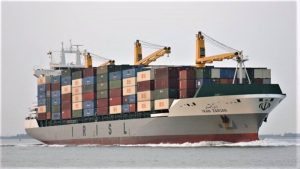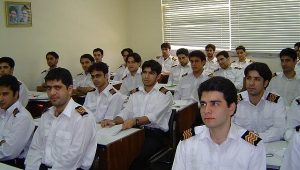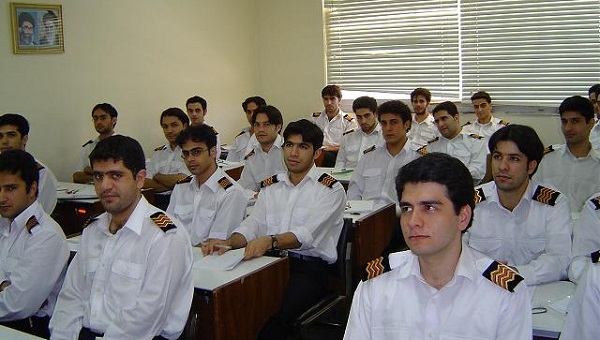Iran, with its strategic geographical location and access to three major bodies of water—the Persian Gulf, the Sea of Oman, and the Caspian Sea—holds a significant position in the maritime industry. This access facilitates extensive commercial fleet operations and underscores the importance of robust maritime and ship training programs to support its maritime ambitions.
Current Status of Maritime and Ship Training
Iran’s maritime training infrastructure is well-established, designed to meet both national and international standards. The country’s maritime education and training (MET) sector is structured to produce skilled seafarers and maritime professionals capable of handling the demands of modern shipping and offshore industries. This training is crucial for maintaining the safety, security, and efficiency of maritime operations.
Commercial Fleets
Iran boasts a sizable commercial fleet, including tankers, container ships, bulk carriers, and other specialized vessels. The National Iranian Tanker Company (NITC) and the Islamic Republic of Iran Shipping Lines (IRISL) are the primary operators of these fleets. Together, they form the backbone of Iran’s maritime logistics and trade, transporting oil, gas, and various goods across the globe.

Maritime Education Centers, Academies, Institutes, and Universities
Iran has several renowned maritime education centers, academies, and universities dedicated to training seafarers and maritime professionals. Some of the key institutions include:
- Iranian Maritime University (IMU) Located in Tehran, IMU offers comprehensive maritime programs, including marine engineering, navigation, and maritime management. the Iranian Maritime University (IMU) has evolved from the training initiatives originally established by the Islamic Republic of Iran Shipping Lines (IRISL). The IRISL Training Institute, known for providing specialized training for maritime professionals, laid the foundation for what is now the Iranian Maritime University.

- Tanker Training Centre in Mahmoud Abad The Tanker Training Centre in Mahmoud Abad is a specialized facility focused on the training of personnel for tanker operations. This center plays a crucial role in ensuring that Iran’s maritime workforce is proficient in the unique skills required for handling and operating tankers, particularly oil and gas tankers.
- Amir Kabir Polytechnic University – Shipbuilding Discipline Amir Kabir Polytechnic University, also known as Tehran Polytechnic, is one of Iran’s leading technical universities, offering a specialized discipline in shipbuilding within its engineering faculty. The Shipbuilding Discipline at Amir Kabir Polytechnic University is renowned for its rigorous academic programs, which cover the fundamentals of ship design, construction, and maintenance. The university emphasizes research, with projects focused on advancing shipbuilding technology, materials science, and hydrodynamics. Collaborative projects with the maritime industry enhance practical learning and innovation. The program integrates practical training with academic studies, ensuring that students gain hands-on experience through internships and partnerships with shipyards and maritime companies.
- Kish Maritime University Situated on Kish Island, this university provides specialized training in marine sciences and maritime operations.
- Imam Khomeini Maritime Sciences University Located in Nowshahr, it is one of the oldest maritime academies in Iran, offering a wide range of maritime courses and programs.
- Chabahar Maritime University Positioned near the strategic port of Chabahar, this university focuses on training professionals for the shipping and logistics industry.
- Bandar Anzali Maritime Institute This institute, located near the Caspian Sea, provides maritime education and training to support northern shipping routes.
These institutions offer programs that range from basic seafarer training to advanced degrees in marine engineering, navigation, and maritime law.
Number of Seafarers
Iran has a substantial number of seafarers, estimated to be in the tens of thousands. These professionals are trained to meet international standards, enabling them to work on both domestic and international vessels. The continuous development of maritime education ensures that Iranian seafarers are well-equipped to handle modern maritime challenges.
Strategic Access to Three Seas
Iran’s access to the Persian Gulf, the Sea of Oman, and the Caspian Sea provides significant strategic and economic advantages. This triad of maritime access points supports Iran’s trade and energy transportation, making it a pivotal player in regional and global maritime industries.
- Persian Gulf: This area is crucial for oil exports, with major ports like Bandar Abbas serving as key hubs for crude oil transportation.
- Sea of Oman: Access to the Indian Ocean through the Sea of Oman allows for broader international trade routes.
- Caspian Sea: The northern Caspian ports facilitate trade with neighboring countries and support the regional maritime economy.
Iran’s maritime and ship training sector is a critical component of its broader maritime strategy. With well-established training institutions, a robust commercial fleet, and strategic access to three major seas, Iran is well-positioned to sustain and grow its maritime capabilities. The continuous enhancement of maritime education and training ensures that Iran can meet the evolving demands of global maritime industries, contributing to the nation’s economic resilience and strategic influence on the world stage.


Hey people!!!!!
Good mood and good luck to everyone!!!!!